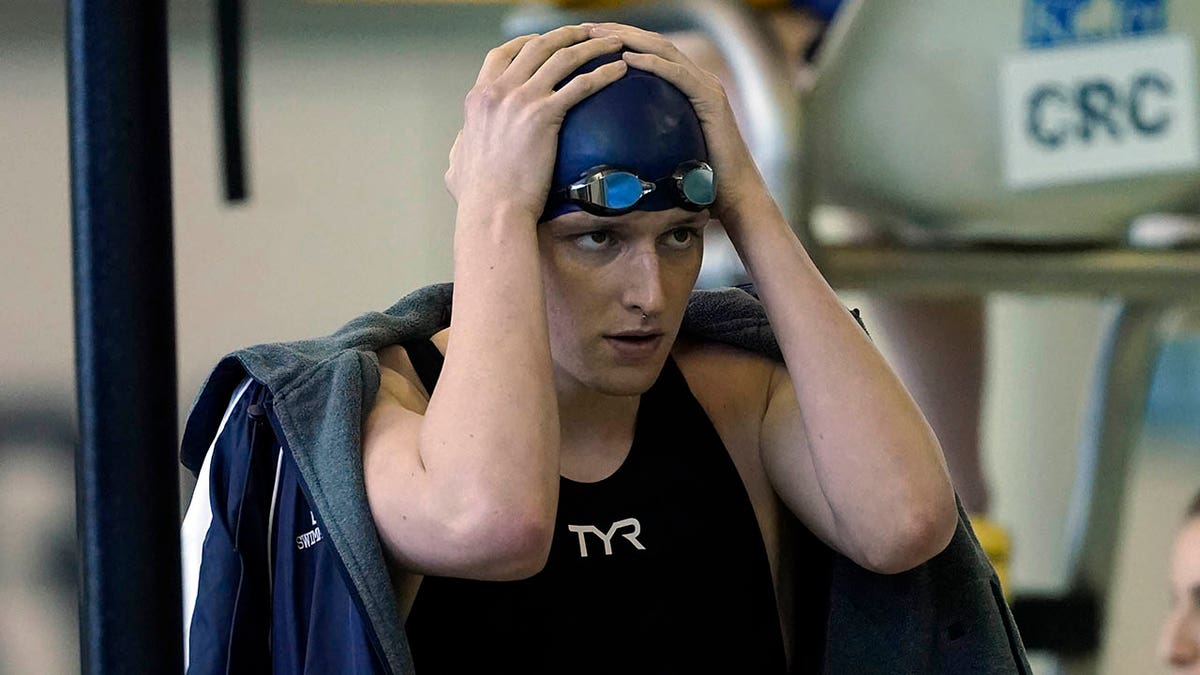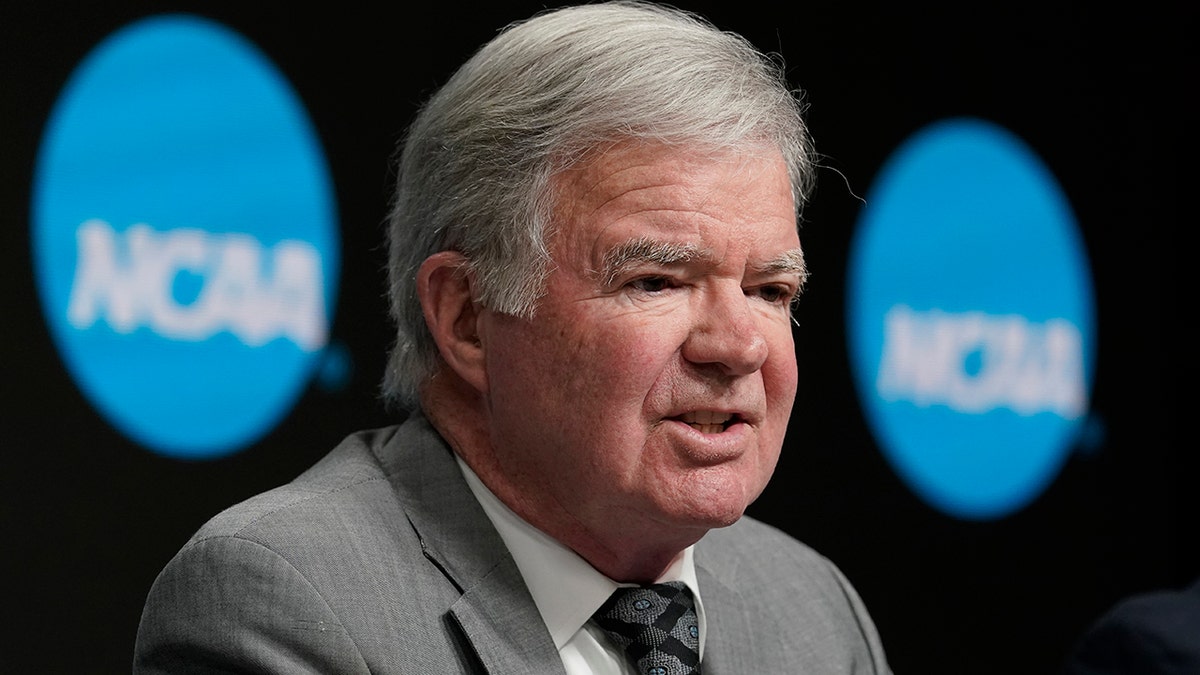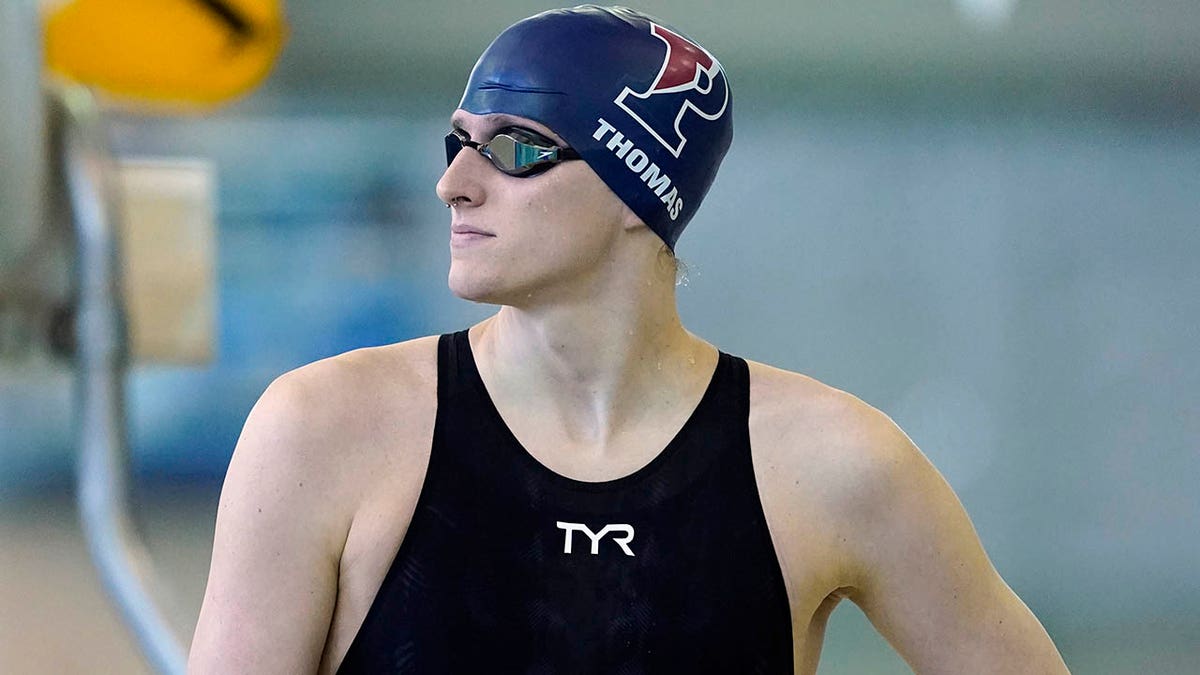Lia Thomas is not your champion: Will Cain
Fox News host says female swimmers in the NCAA should not 'pretend' and refuse to participate in a fraudulent system on 'The Fox News Rundown.'
Lia Thomas’ national championship and her prowess in the pool during the 2021-22 NCAA swim season ignited a debate over transgender participation in women’s sports.
NCAA President Mark Emmert, speaking in Minneapolis ahead of the NCAA Women’s Basketball Final Four, reiterated Wednesday at a news conference the NCAA Board of Governors will look to "phase in" new transgender participation policy rules for the "new competition cycle."
"What the board also said, though, is that the new standard will be phased in starting the new competition cycle. The board's position has been we will utilize the standards the Olympics are using, but they also reserve the right to talk to the medical -- the Committee on Medical Aspects of Sport to make sure that that model, whatever the Olympics is using, is also consistent with collegiate athlete health and well-being and inclusion," Emmert said. "And so the standards that have now been put in place by USA Swimming may or may not be adopted by the international federation, FINA."
"The board is committed to using the same standards as the Olympics and simply phasing them in so that athletes know what they are far enough in advance that they can make decisions appropriately."
CLICK HERE FOR MORE SPORTS COVERAGE ON FOXNEWS.COM

NCAA president Mark Emmert speaks at a news conference at the Target Center, site of the Women's Final Four NCAA tournament Wednesday, March 30, 2022, in Minneapolis. (AP Photo/Eric Gay)
The rules about Thomas’ participation in the Ivy League Championships and later the NCAA Championships were murky before she won a national title in the 500-yard freestyle race earlier this month.
Emmert went over everything that transpired with the NCAA’s policies from January until March.
The NCAA initially updated its transgender participation policy in January, saying it will be determined on a sport-by-sport basis. If there is no national governing body for the sport, then the NCAA sport will follow the International Olympic Committee’s (IOC) policy.
The updated policy for the NCAA said that by March "transgender student-athletes will need to document sport-specific testosterone levels beginning four weeks before their sport's championship selections. Starting with the 2022-23 academic year, transgender student-athletes will need documented levels at the beginning of their season and a second documentation six months after the first. They will also need documented testosterone levels four weeks before championship selections. Full implementation would begin with the 2023-24 academic year."
USA Swimming then published its new operating policy in February.
"While recognizing the need for the aforementioned guidelines in elite competition, sport is an important vehicle for positive physical and mental health, and, for this reason, USA Swimming remains steadfast in its continued commitment to greater inclusivity at the non-elite levels," the organization said.
"In order to balance these two priorities, specific guidelines have been developed for both non-elite and elite athletes and elite events. At the non-elite level, an inclusive process has been established by which an athlete can elect to change their competition category in order for them to experience the sport of swimming in a manner that is consistent with their gender identity and expression," it continued.

Pennsylvania's Lia Thomas waits for a preliminary heat in the Women's NCAA 500 meter freestyle swimming championship start Thursday, March 17, 2022, in at Georgia Tech in Atlanta. (AP Photo/John Bazemore)
"At the elite level, a policy has been created for transgender athlete participation in the U.S. that relies on science and medical evidence-based methods to provide a level-playing field for elite cisgender women, and to mitigate the advantages associated with male puberty and physiology. Elite athletes shall include any athlete who has achieved a time standard and desires to participate in elite events as defined in the policy."
NCAA SWIMMING CHOOSES INCLUSION OVER INTEGRITY, FAIRNESS
USA Swimming said a decision-making panel of three independent medical experts would implement the elite athlete policy. There will be two areas of criteria they will be looking for eligibility:
"Evidence that the prior physical development of the athlete as a male, as mitigated by any medical intervention, does not give the athlete a competitive advantage over the athlete’s cisgender female competitors.
"Evidence that the concentration of testosterone in the athlete’s serum has been less than 5 nmol/L (as measured by liquid chromatography coupled with mass spectrometry) continuously for a period of at least thirty-six (36) months before the date of application.
"Athletes will need to abide by USA Swimming’s Athlete Inclusion, Competitive Equity and Eligibility Policy to be eligible to set USA Swimming National Age-Group Records in the 13-14 age group and above or to be eligible to set an American Record, per the USA Swimming Rules & Regulations, in a competition category which is different than the gender assigned to the athlete at birth."
Thomas was able to compete anyway. Emmert said Wednesday medical professionals didn’t think it was safe to adopt the rule for swimmers right away.

NCAA president Mark Emmert speaks at a news conference at the Target Center, site of of the Women's Final Four NCAA tournament Wednesday, March 30, 2022, in Minneapoils. (AP Photo/Eric Gay)
She went onto compete and win the national championship in the 500 but fell short in two other races.
With the next swimming and diving season starting in late 2022, Phase 2 of the NCAA policy will begin Aug. 1 while Phase 1 is already in place for spring sports.
Transgender women who want to participate in NCAA women’s sports must comply with the 2010 NCAA policy which says they "may not compete on a women’s team without changing it to a mixed team status until completing one calendar year of testosterone suppression treatment" and "meet the sport standard for documented testosterone levels at the beginning of their competition season and again six months later."
"This means that student-athletes who have already been competing do not need to demonstrate the newly adapted sport-specific testosterone levels for the entire prior year if they are not available.
"For participation in NCAA championships, transgender athletes must additionally provide documentation of testosterone levels to the (Competitive Safeguards and Medical Aspects of Sports to the Board of Governors) with laboratory work completed within four weeks of the championship selections."
By Aug. 1, 2023, there will be full implementation of the policy.
"… Participation in NCAA sports requires transgender student-athletes to provide documentation that meets the sport-specific standard submitted twice annually (once at the beginning of competition season and the second six months following) for one year. This process will continue annually for eligible student-athletes," the organization says.

Pennsylvania's Lia Thomas waits for a preliminary heat in the Women's NCAA 500 meter freestyle swimming championship start Thursday, March 17, 2022, in at Georgia Tech in Atlanta. (AP Photo/John Bazemore)
CLICK HERE TO GET THE FOX NEWS APP
"For participation in NCAA championships, transgender athletes must additionally provide documentation of testosterone levels to the CSMAS with laboratory work completed within four weeks of the championship selections."










































